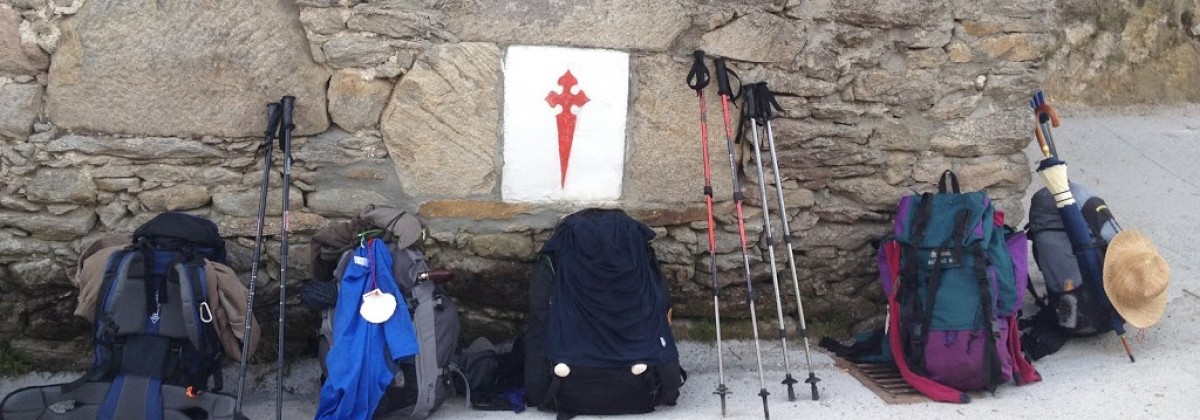the village of Roncesvalles has served pilgrims coming over the pass since the 9th century and in the late 12th century, Sancho VII El Fuerte ordered the construction of a church, done in the Gothic style. his remains and that of his wife now lie in the crypt of the church. in 1400, fire destroyed the original church building, though other structures survived, including the chapel of Sacti Spiritus, which stands over a crypt where Roland is reputed to have stabbed himself after the defeat in the Pass and served as a burial place for peregrinos that perished on the Camino. a bishop from Pamplona bolstered Sancho VII’s decision by creating a co-fraternity to administer to peregrinos at Roncesvalles. in the 13th century, Navarre underwent a period of prosperity which served to enhance the power of this co-fraternity even more; by the end of the 14th century their strength was such that the Navarrese Crown borrowed money from the collegiate at Roncesvalles. reforms over the 16th and 17th centuries enhanced their position, which were threatened by the French Revolution and instability that followed in the late 18th and early 19th centuries. as a first experience with albergues (aulberge in French), the one in Roncesvalles was about what I anticipated from one of the most popular points of origination for the Camino. the space we stayed in was recently renovated and modernized to match the rapidly increasing demand for beds and amenities. previously, up to 120 people bunked in the same large room in the collegiate facility on the main road next to the river. the new building (seen above) was converted from an old youth hostel (I believe) and has something like 300 beds on three floors, which are broken up into little bunk alcoves of four beds with a locker for each bed and had a reasonable three-showers-per-gender-per-floor ratio. the Russian guys sharing our alcove snored like the dickens but weren’t the worst we endured by a long shot (our roommates the next night in Zubiri was muuuuuuuch worse).
as a first experience with albergues (aulberge in French), the one in Roncesvalles was about what I anticipated from one of the most popular points of origination for the Camino. the space we stayed in was recently renovated and modernized to match the rapidly increasing demand for beds and amenities. previously, up to 120 people bunked in the same large room in the collegiate facility on the main road next to the river. the new building (seen above) was converted from an old youth hostel (I believe) and has something like 300 beds on three floors, which are broken up into little bunk alcoves of four beds with a locker for each bed and had a reasonable three-showers-per-gender-per-floor ratio. the Russian guys sharing our alcove snored like the dickens but weren’t the worst we endured by a long shot (our roommates the next night in Zubiri was muuuuuuuch worse).
 |
| Roncesvalles from Col de Lepoeder – today’s peak |


